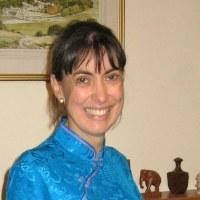Research
I am interested in the spread of agriculture during prehistory, using molecular genetic techniques to look for patterns of diversity and adaptation in crop species which may reflect early human dispersals. I mainly work with barley, wheat and buckwheat landraces; these are farmer's varieties that are highly locally adapted. Many of these landraces are no longer grown by farmers, as they have been replaced with higher-yielding modern cultivars. However, germplasm collections around the world have conserved these landraces, and studies of their genetic diversity shows that they are important sources of genetic material for crop breeding programmes. The conservation of these important crop varieties, both ex situ in germplasm collections, and in situ in farmers' fields, is vital for the food security not only in the countries where these are grown, but to the world as a whole. Genetic analyses of these landraces is revealing the genomic regions associated with environmental adaptation, such as genes involved in flowering time pathways. Understanding environmental adaptation in plants will assist in breeding crops that are resilient to environmental extremes.


